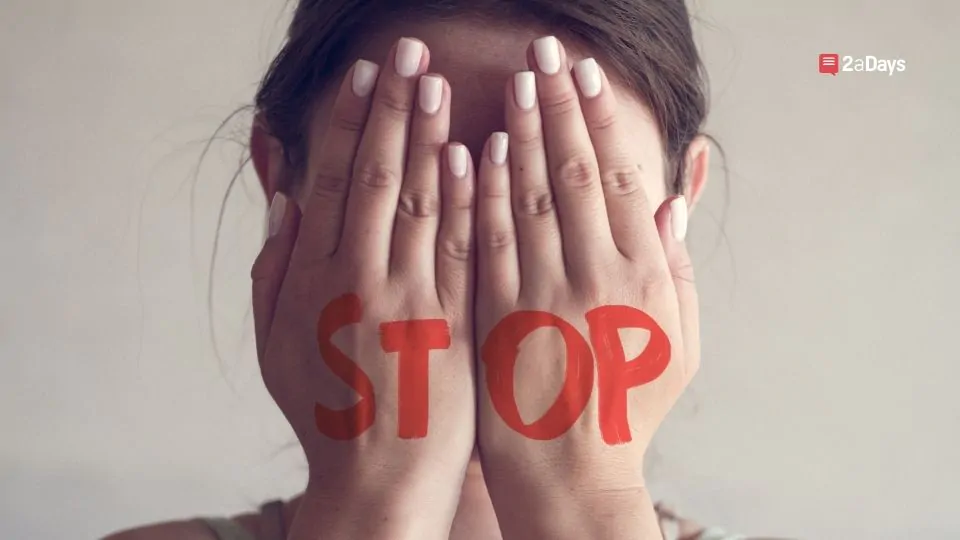In an ideal world, all athletes would have great relationships with their coaches, but sadly, athlete-coach relationships can be far more complex. Although the world is currently fixated on the outcome of the domestic abuse trial involving Amber Heard and Johnny Depp, abusive relationships can thrive wherever a power imbalance is present—including college sports.
What do power imbalances in college sports look like? In short, college coaches control many resources that athletes need and want from scholarships to playing time to career connections and can use these things to get their athletes to fall in line. For example, when I was a college athlete, my coaches would threaten to take away my scholarship if I didn't train through my injuries. Other times, they would tell me that I was selfish or lazy for not supporting my team. This can be considered coercion and a form of emotional or psychological abuse, and lead to chronic injuries and out-of-pocket medical expenses once I graduated.
Other coaches use words to harm athletes. Take Texas Southern University head women's basketball coach, Cynthia Cooper Dyke, for example. Cooper Dyke is currently under scrutiny for using overtly sexual and demeaning language in practices and subjecting athletes to body shaming among a long list of other abuses of power. Former East Carolina University softball player, Ali Ramirez, recalled being belittled by her coaches during her time at ECU. Although she grew up under the coaching influence of her father, a tough high school football coach, college was a different story. “It wasn't like my dad coaching his guys and being tough, telling them to get it together,” she told 2aDays in 2019. “It was ‘Ali, why are you so stupid?! What is wrong with you?' With some choice words thrown in there.”
Related: A College Athlete's Struggle with Mental Abuse
This is not to say that all college coaches are malicious or abusive. But some are—enough that the in 2016, the International Olympic Committee published a consensus statement detailing different types of athlete abuse and defining emotional abuse as “a pattern of deliberate, prolonged, repeated non-contact behaviors within a power-differentiated relationship.”
Although the NCAA doesn't explicitly define, let alone prohibit abuse and does very little to help prevent it from happening, recruits and college athletes need to be aware of these dynamics. Here are three telltale signs of abusive coaching, according to experts.
1. Your coach criticizes you as a person
It's a coach's job to provide constructive feedback to help athletes perform at their best. However, when criticism turns to bullying, that's another story entirely. “An emotionally abusive relationship, I think, is when a coach fuses the criticism of what the athlete is doing on the field or the court with who they are as a person,” said Jonathan Katz, a clinical and sports psychologist.
Consider Ali, the softball player here. When her coaches yelled things like ‘Ali, why are you so stupid?! What is wrong with you?' is that really helping her become a better player? No—it's criticizing her as a person instead of critiquing her skill. The kind of verbal abuse Cynthia Cooper-Dyke used also has negative mental effects on athletes. I won't republish her graphic comments here (you can read them in The Athletic's report), but it was so bad that one of her players said “This woman mentally and emotionally terrorized us.” And for Ramirez, her coach's bad faith question: “what's wrong with you?” ran through her head on a loop and increased her feelings of anxiety and self-doubt.
If you think your coach is crossing a line with the way they speak to you, take some time to ask: is my coach criticizing me as a person or giving me valuable feedback?
2. Your coach creates a sense of instability
Instability can be a powerful tool for an abuser. According to Abigail Hazlett, a doctoral student at the University of Texas who studies interpersonal violence, by creating a sense of instability, a coach can make athletes “learn to not trust themselves and their own intuition about the situation. Ultimately, the goal of it is to gain control over the other person so that they can be manipulated, and that they can be basically used in the service of the person who's in control.”
What does this look like in college sports? According to an anonymous former D1 swimmer, her coach once told her that she needed to have a 3.5 GPA to remain on the team during her freshman year. “I remember the first midterms came out and I had a 3.2,” she said. “And then I went back to the team, and I was upset about it, and no one has a 3.5 except for like three people.”
Similarly, 2aDays founder and CEO Keirsten Sires recalls her college tennis coach playing “mind games” with her during her collegiate career. “One time I asked to go get water,” she recalled. “He said no, which is weird in itself. But then my teammate asked literally two seconds after and he said yes to her, but not to me.”
Although these may seem like minor offenses, when abusers engage in these tactics long term, athletes can have trouble trusting their own intuition, which can lead to feelings of helplessness and unhealthy levels of dependence on their coaches. Asking yourself “Do I trust my coach?” can help you determine if your coach is playing mind games, too.
3. Your coach pushes you through injuries
Injuries can be tricky for college athletes—no athlete wants one but once an athlete is injured, they will do just about anything to get back on the field, including ignoring their pain. And while an athlete may need to tough out an injury at the end of a season or during an important game, coaches can downplay and exacerbate injuries as well.
When Sires played tennis in college, she developed a nagging shoulder injury. When the pain got severe, her coach didn't believe her. “My coach was like, ‘You're fine. You probably just have a strain. There's no way you tore it,'” Sires said, even though she remembers her shoulder being in what she remembers as “throbbing pain.” When Sires graduated years later after quitting tennis and opting to play college soccer instead, she found out she tore her rotator cuff!
My coaches excelled at getting into my head as a way to get me to train through injuries. Several accused me of lying or, like Keirsten's coach, downplayed my pain which made me question if it really was in my head. Or they'd make me feel as if I was complaining about my injuries too much—one time, after I expressed concern about training through an injury, a coach approached me in the training room, pointed to my teammate and told me “She's dealing with a grade three hamstring tear so what's your excuse? You need to toughen up.”
Coaches can also threaten to take away scholarships. In 2019, members of the Rutgers softball team alleged that they lived in constant fear of getting their scholarships revoked and subsequently “endured dangerous conditioning sessions that regularly left them in distress, while being subjected to wide-ranging physical and emotional abuse.”
If you're injured and hesitant about training, ask yourself if your coach is making your injury better or worse and if you feel that you have control over your body and choice to train and compete. If not, they may be coercing you to push your limits.
Abusive coaching is complex and requires knowledge and self-reflection to identify. If you feel that your coach is being abusive, be sure to confide in a trusted adult like a parent or counselor, and get the help you need. You can also anonymously report abusive behavior here on 2aDays to prevent future athletes from these situations as well.
Katie (M.K.) Lever is a former Division 1 athlete and current doctoral candidate at the University of Texas at Austin where she studies NCAA discourse and policy. She is also a freelance sportswriter and creative writer on the side. She is the author of a new book Surviving the Second Tier available on AMAZON. Follow Katie on Twitter and Instagram: @leverfever.
Have an idea for a story or a question you need answered? Want to set up an interview with us? Email us at [email protected]
* Originally published on June 10, 2022, by Katie Lever, Ph. D







